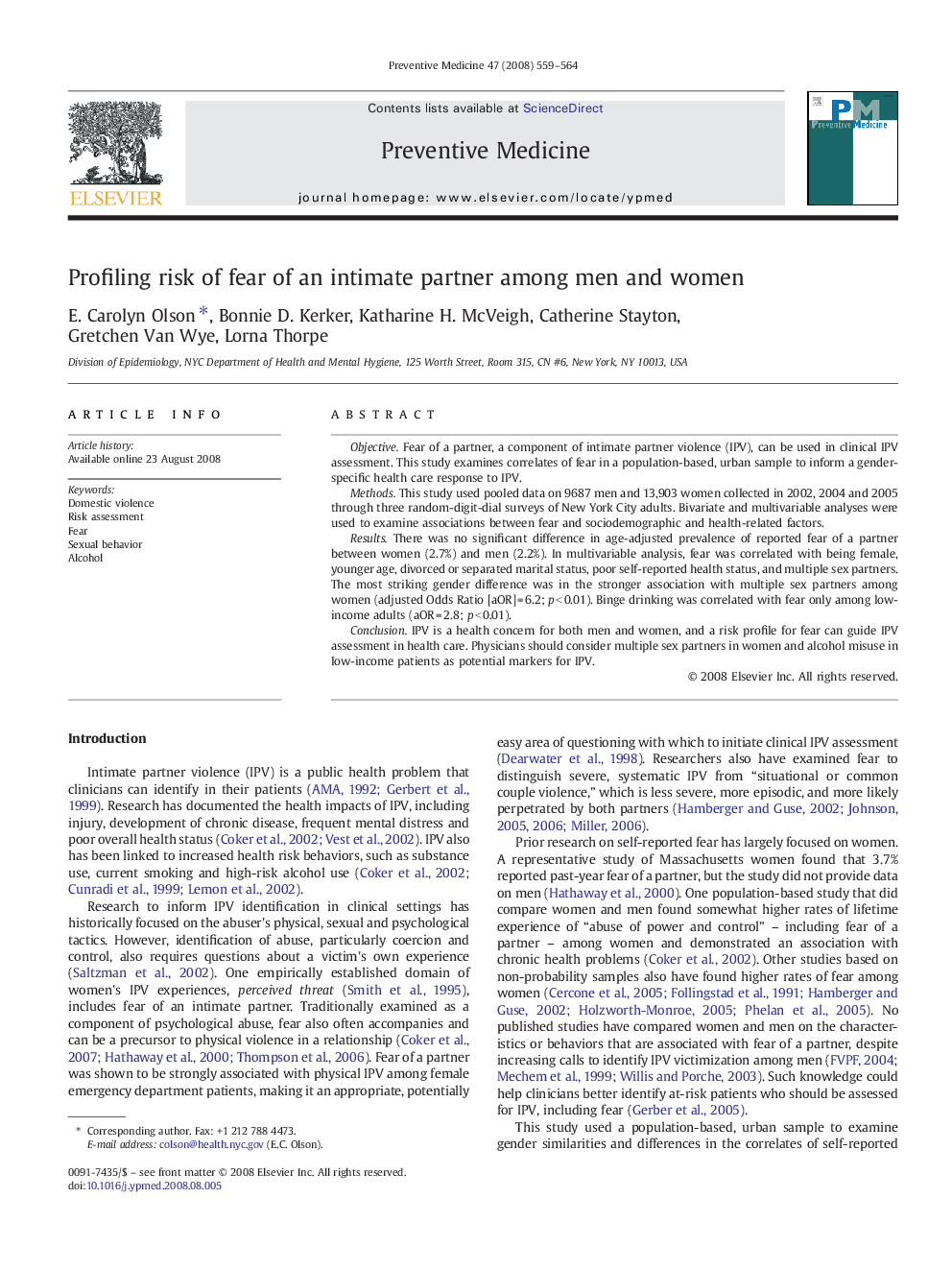| Article ID | Journal | Published Year | Pages | File Type |
|---|---|---|---|---|
| 3101374 | Preventive Medicine | 2008 | 6 Pages |
ObjectiveFear of a partner, a component of intimate partner violence (IPV), can be used in clinical IPV assessment. This study examines correlates of fear in a population-based, urban sample to inform a gender-specific health care response to IPV.MethodsThis study used pooled data on 9687 men and 13,903 women collected in 2002, 2004 and 2005 through three random-digit-dial surveys of New York City adults. Bivariate and multivariable analyses were used to examine associations between fear and sociodemographic and health-related factors.ResultsThere was no significant difference in age-adjusted prevalence of reported fear of a partner between women (2.7%) and men (2.2%). In multivariable analysis, fear was correlated with being female, younger age, divorced or separated marital status, poor self-reported health status, and multiple sex partners. The most striking gender difference was in the stronger association with multiple sex partners among women (adjusted Odds Ratio [aOR] = 6.2; p < 0.01). Binge drinking was correlated with fear only among low-income adults (aOR = 2.8; p < 0.01).ConclusionIPV is a health concern for both men and women, and a risk profile for fear can guide IPV assessment in health care. Physicians should consider multiple sex partners in women and alcohol misuse in low-income patients as potential markers for IPV.
